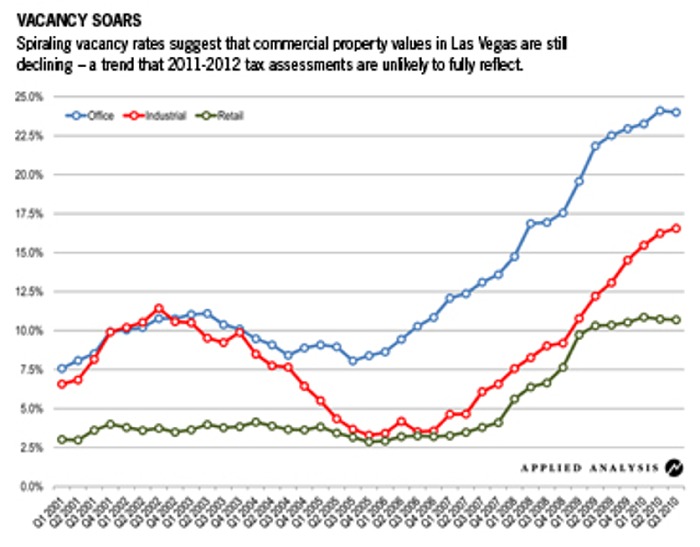State's replacement-cost valuation methodology skews some property assessments, thwarting uniform and equal taxation.
Pivotal property tax rulings by the Nevada Supreme Court presume that strict adherence to valuation methodology ensures that similar properties are assigned similar taxable values. But what if the state's required valuation methodology results in differing taxable values for similar properties?
Uniform and Equal
The Nevada Constitution protects property owners from arbitrary tax assessments by requiring the Legislature to "provide by law for a uniform and equal rate of assessment and taxation" and "prescribe such regulations as shall secure a just valuation for taxation of all property, real, personal and possessory."
Twenty years ago, in what was called a "tax revolt," property owners in Incline Village relied on this provision of the Constitution to successfully challenge the methodology the Washoe County Assessor used to value their properties. The revolt found its way to the Nevada Supreme Court, which ultimately issued two opinions.
In State, Board of Equalization vs. Bakst, the Nevada Supreme Court in 2006 rejected the assessor's property valuation because the methodologies he used had not been approved by the Nevada Tax Commission, were not applied uniformly in Washoe County, and were not the same as the methods used by assessors in other counties. The Court noted "the Constitution clearly and unambiguously requires that the methods used for assessing taxes throughout the state must be 'uniform'."
In 2008, the success achieved in the Bakst case was reaffirmed in State, Board of Equalization vs. Barta, where the court stated that "like properties' taxable values must be obtained using uniform assessment methods." In the same ruling, the Court elaborated that "a property value determined using unconstitutional and nonuniform methods is necessarily unjust and inequitable."
An Imperfect Process
In Nevada, the taxable value of improved property is calculated using a replacement-cost approach that is defined by state law. Under this statutory approach, assessors value the land component and improvement component separately. The land component is valued "consistently with the uses to which the improvements are being put," while the improvement is valued at replacement cost, less depreciation.
Assessors must determine replacement cost using Marshall & Swift cost manuals. And, instead of relying on market-derived depreciation, state law requires assessors to depreciate improvements at the rate of 1.5% per year for 50 years. Assessors compute a parcel's final taxable value by adding the value of the land component and the value of the improvement component.
In Barta, the Court expressed an assumption underpinning both the Bakst and Barta cases when it stated that this replacement-cost approach, if "properly applied, will necessarily produce the same measure of taxable value for like properties."
Does it, though? If this assumption fails to prove consistently true, then the statutory replacement-cost approach is burdening some property owners with more than their fair share of property tax.
Inequity in Action
To test whether this is the case we compared the taxable value of two homes which recently sold in Washoe County. We chose single-family residences because of the availability of sales data, but the conclusion we draw from this data should be just as applicable to commercial properties.
One property sold for $1 million, and the other for $975,000. The attributes of the two homes were different but their market values were roughly equivalent.
One would expect the taxable values of the two homes to be similar as well, but that is not what we found. The house which sold for $975,000 is assigned a taxable value which is more than twice the taxable value of the home which sold for $1 million.
More likely than not, the difference in the taxable value assigned to the two properties is the result of strict adherence to the statutory replacement-cost approach. That approach requires the assessor to reduce the value of a home by depreciation, even if the home is appreciating in value.
In our example, the house which sold for $1 million was built in 1970 and is assigned a taxable value which is 26.2% of its sales price, while the one which sold for $975,000 was built in 2021 and is assigned a taxable value which is 58.0% of its sales price.
Similar examples abound. Among the sales we reviewed, the average sales ratio (calculated by dividing taxable value by sales price) for homes built before 1971 is 31.6%, while the average sales ratio for homes built after 2012 is 65.5%.
This problem extends to all property types including commercial, because the assessor is required to follow the same statutory replacement-cost approach.
What does this mean for taxpayers? Property owners with improvements constructed relatively recently should evaluate whether the taxable value of their property is unreasonably high when compared to the taxable value of other properties put to the same use.
If an assessment is inequitable, redress is available by filing a timely protest. The county boards of equalization have the authority to reduce the taxable value of property where it has been assessed at a higher value than other property with identical usage and a similar location.
In summary, adherence to the statutory replacement-cost methodology is not resulting in evenly measured taxable values for like properties. Instead, the methodology has created systemic inequality. Properties with older improvements which have appreciated are systematically undervalued. As a result, some properties are assessed at less than half the value of comparably priced properties with newer improvements.
This disparity calls into question whether Nevada is achieving its Constitutional promise of a just valuation and uniform and equal taxation. Property owners should make certain their tax assessment meets the constitutional requirements of uniform and equal or seek help from a property tax professional to make that determination.





